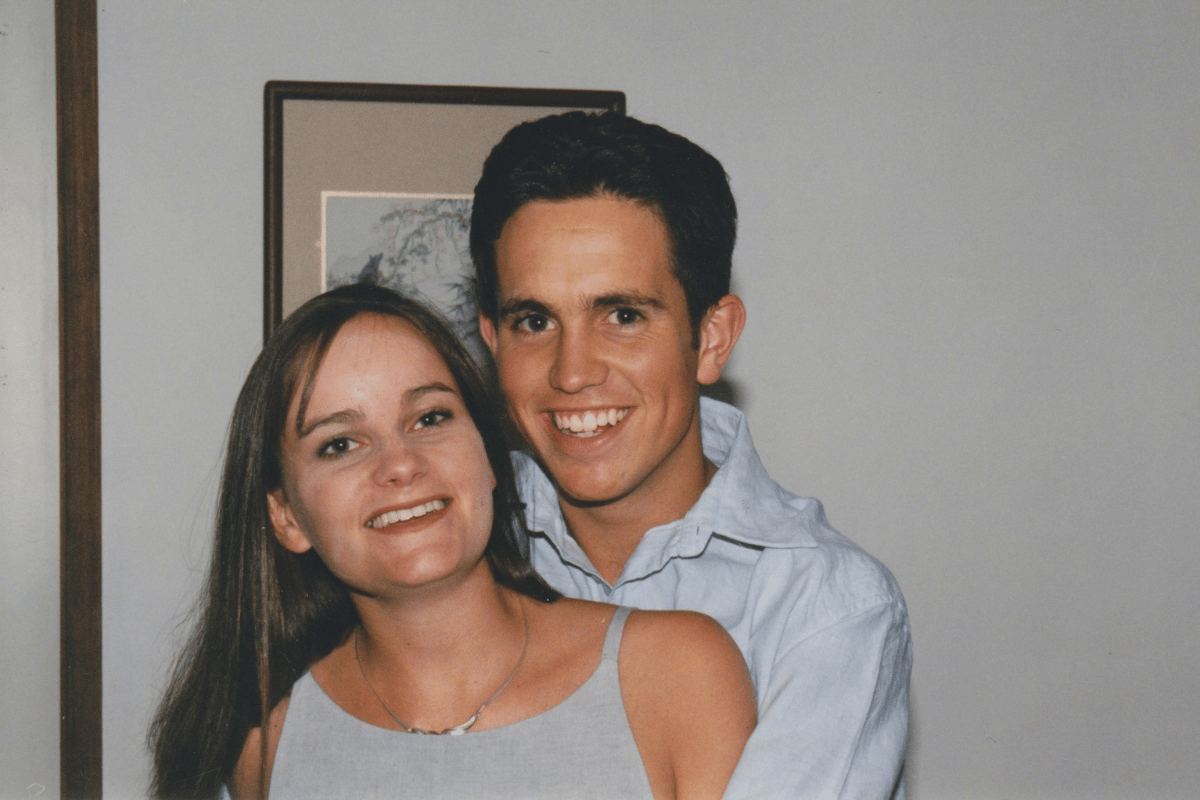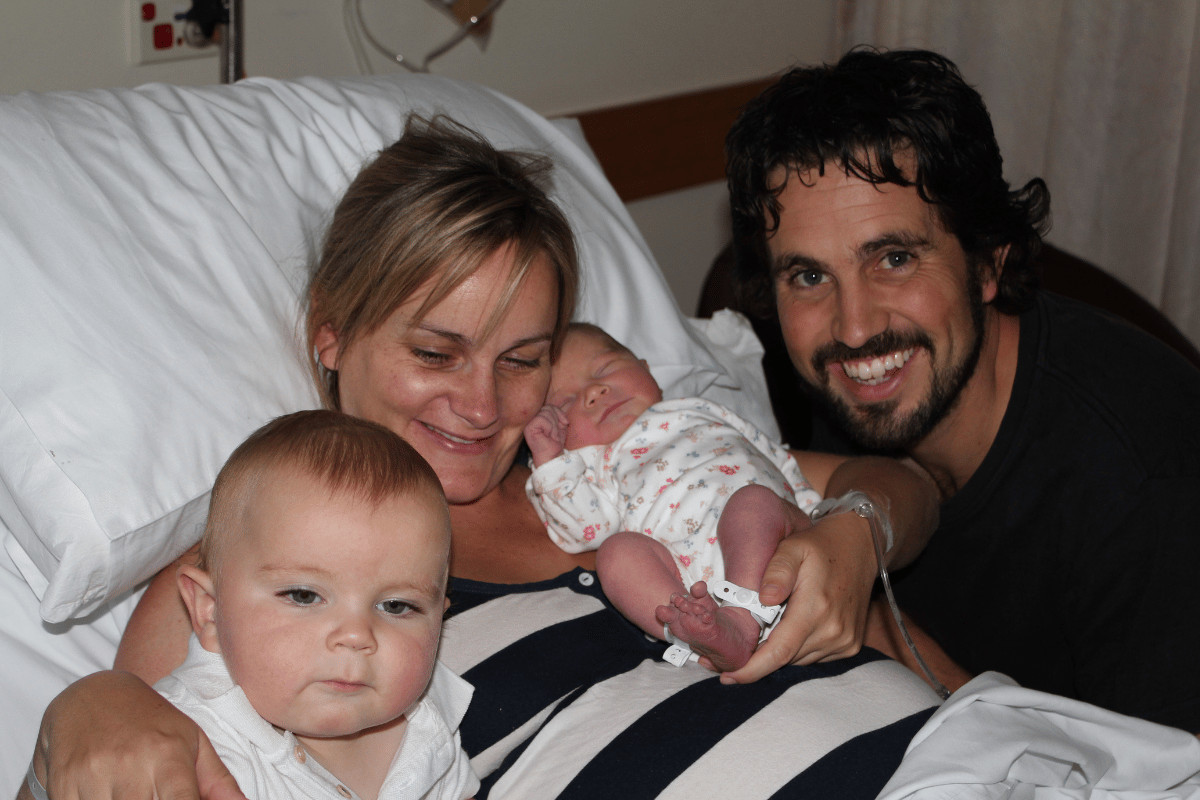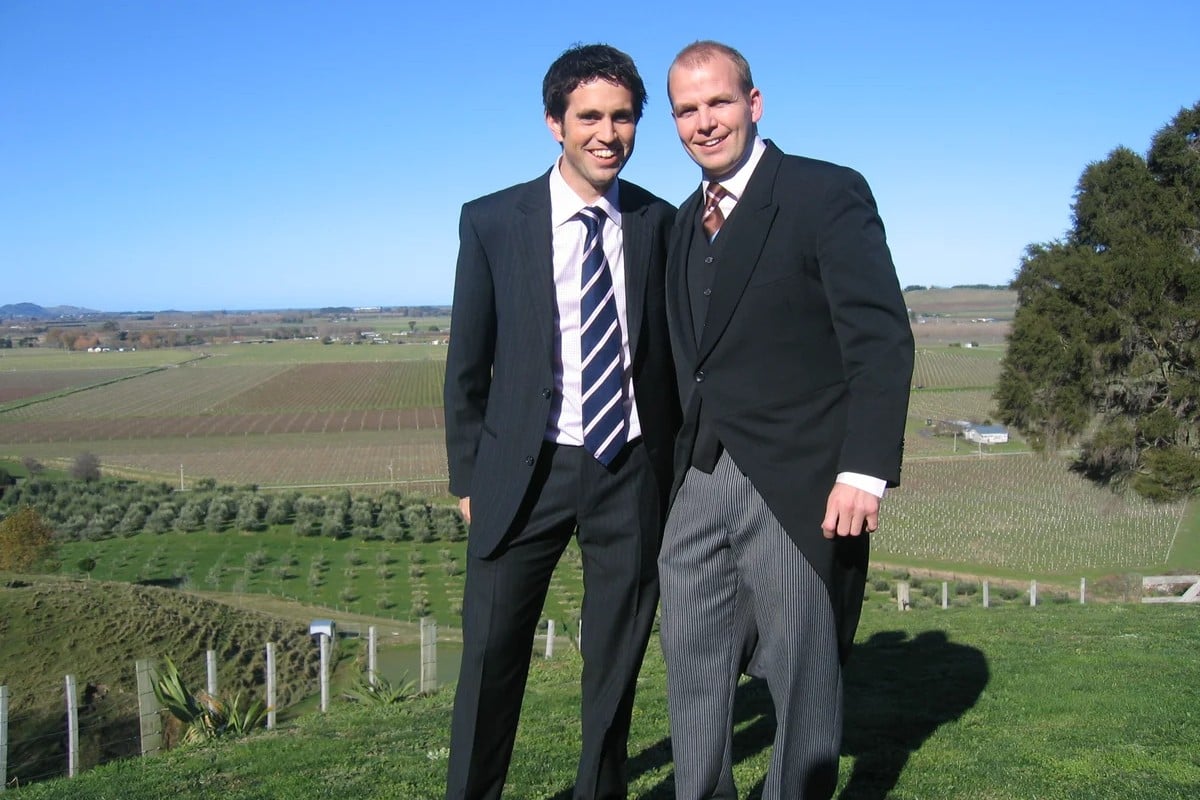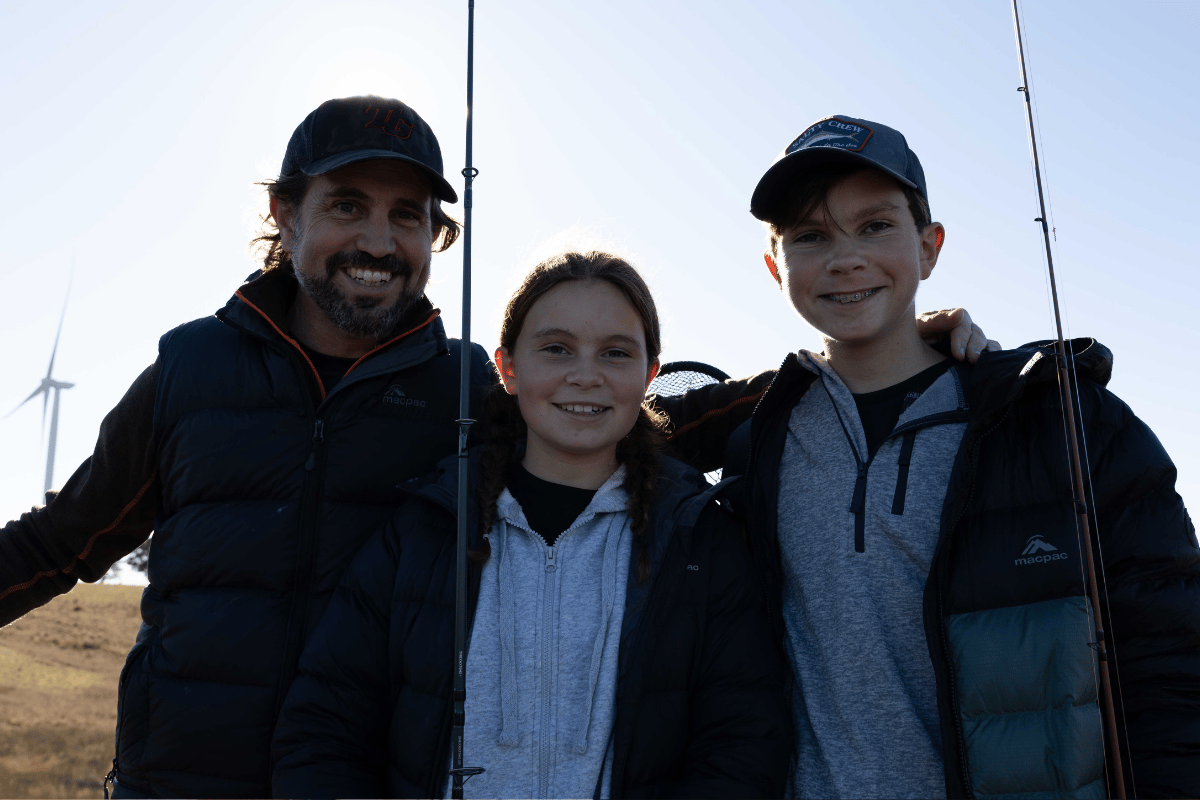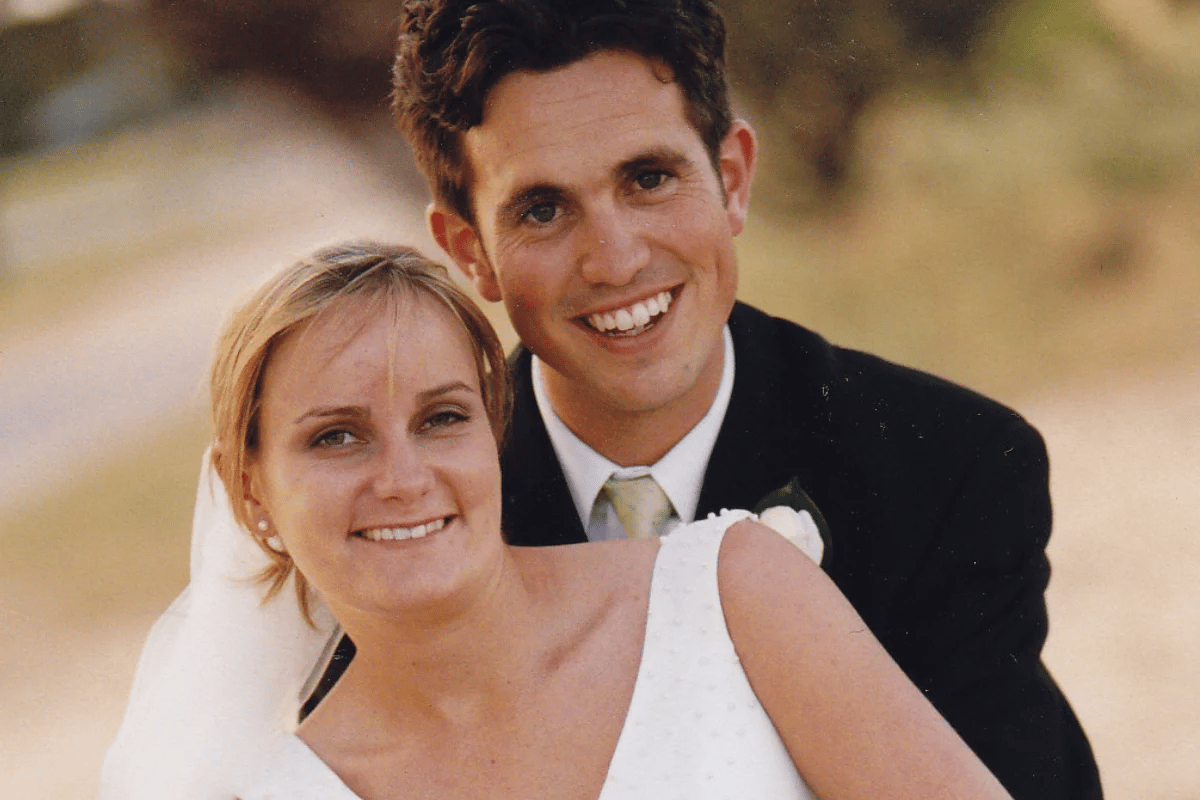
If you want to support independent women's media, become a Mamamia subscriber. Get an all-access pass to everything we make, including exclusive podcasts, articles, videos and our exercise app, MOVE.
My world was turned upside down in early December 2014, when my 37-year-old wife Bec died suddenly from sepsis.
She was also the mother of our two young children, three-year-old Tom and Lottie, aged 23 months.
I've been navigating grief and loss for the last ten years and have learnt that I will carry it with me for the rest of my life.
While my story is sad, it is also a story of resilience and hope. The support of others has helped me find love again, experience the joy in our kids, strengthen connections with close friends and build a new future for us all.
Watch: R U OK? Post continues below.
Grieving for Bec and the life we imagined.
Grief isn't just about losing someone; it's about losing the future you thought was certain.
When Bec died, everything we'd imagined for our little family of four vanished overnight, as we became a team of three.



